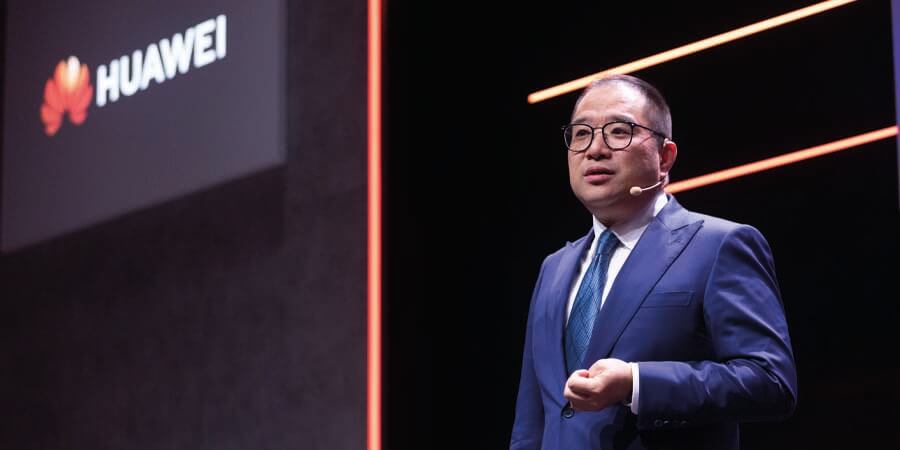Driven by AI technologies, telecom companies are embarking on an accelerated transformation journey. Recognizing that advancing digital intelligence transformation hinges on the integration of vast carrier knowledge, experience, and data with cutting-edge AI technologies, Huawei, the leading global provider of information and communications technology (ICT) infrastructure and smart devices has identified the critical need for this fusion.
Bruce Xun, President of Global Technical Service Department, indicated the cognition entails a shift from single-domain data to converged data and digital twin. Moreover, the effective management of documents, knowledge library, vector database, and corpuses are essential for cognitive enhancement. Leveraging these foundational elements, Huawei applies AI technologies to cultivate intelligent innovations, thereby elevating existing digital solutions to achieve tangible business value in high-value scenarios.
A Path to Green Networks
The integration of intelligent connectivity is not easy. To explain this process, Bruce mentioned that solving key issues in two typical scenarios will give the company the chance to accelerate the evolution to green networks. “In scenarios with poor or no grid, the innovative scenario-based design and intelligent energy consumption scheduling algorithm can provide power to sites through solar, diesel generator, and battery coordinately. In scenarios where legacy equipment rooms need to be modernized, we'll plan services, networks, and infrastructure in a coordinated manner, using aspects of new service development and efficiency improvement by using full-service areas as the anchor,” he stated.
Huawei's Vision for Diversified Computing in the AI Era
Delving into IT integration, Bruce explained that the intelligent IT Integration aims to build diversified computing centers in the AI era. “In general DC scenarios, the innovative prefabricated Fusion Block data center shortens the TTM by 29%, improves the space usage effectiveness by 10%, and reduces the initial CAPEX by 30% compared to traditional solutions. In addition, the solution supports flexible horizontal and vertical expansion, and has been deployed in more than 25,000 cabinets worldwide.”
Bruce explained how systematic collaborative planning and the integration of computing, storage, and networks can achieve cluster computing power efficiency of over 90%. “The innovative L1 & L2 full-stack liquid cooling solution and the AI-based dynamic temperature optimization algorithm can achieve ultimate energy efficiency and PUE,” he said.
Intelligent Operations Advances Network-Centric to Service-Centric Operation Transformation
Delving deeper, Bruce elaborated on how AI, coupled with digital twin, revolutionizes the O&M mode, transform it from network-centric to service-centric. “Through the MBB scenario, (which is different from previous mode), we will plan, prioritize and execute O&M activities according to the actual impact on customers, not only the severity of each alarm. By doing this, the service-centric network availability can be maximized” he added.
Innovations in Network NPS and Service Development
With decades of experience in network planning and optimization, Huawei has developed a spatiotemporal digital twin, utilizing data modeling across geographical, network, experience, and satisfaction dimensions. This framework, coupled with AI-based time sequence prediction and exception detection, Huawei can keep building committed leading performance and experience, and extend the advantage to end user satisfaction, to achieve leading NPS . The spatiotemporal digital twin and converged data unleash new value and boost service development. Smart DataCube supports agile data orchestration and convergent analysis, which can help accelerate Mobile Money high value user acquisition, FWA service and 4G/5G user migration.
Huawei’s Intelligent Digital Services Drives New Growth
Continuously driving innovation, Huawei leverages millions of global tariffs and GenAI capabilities to expedite the Time to Market (TTM) for new tariffs, supporting fast idea to cash, the new system also supports B2B billing.
Empowered by GenAI, AICC’s intelligent response capabilities have significantly increased self-service closure rate and improved interaction experience.
The micro-financial product launched by Mobile Money, enabled by SmartCare, can support precise high-value user acquisition, stimulate transactions, and increase micro-financial revenue.
Huawei Learning Develops New Digital Intelligence Talents
Huawei provides systematic talent development services which include talent planning, cultivation, assessment, and operation. The services focus on the skills that new talent will require in the era of intelligence, as well as on the talent training paths and methods. Huawei will continue to train new digital intelligent talent required for transformation.
In the journey towards digital intelligence transformation, cognition is the core, digital is the cornerstone, and AI technology is the accelerator, AI technology can generate new value only when combined with cognition and digital. The key target of digital intelligence transformation is to resolve long-standing problems and bring tangible business value, with new technology and mode adoption. Bruce concluded that Huawei’s ICT services and software are steadfast in their commitment to innovation and practical implementation, persistently striving to create new value.
In 2023, Huawei achieved significant progress on multiple solutions. They prioritized sustainability by building green, simplified, and resilient networks, saving 640 million kWh of electricity, and achieved an outstanding data center PUE of 1.15. Huawei ensured the stability of over 1500 networks globally, led digital intelligence transformation in O&M, and ranked first in performance benchmarking of their target network. Additionally, they focused on innovation, the digital intelligent services are serving 4.65 billion users accumulatively. And they trained 3.3 million professionals to bolster digital talent.





